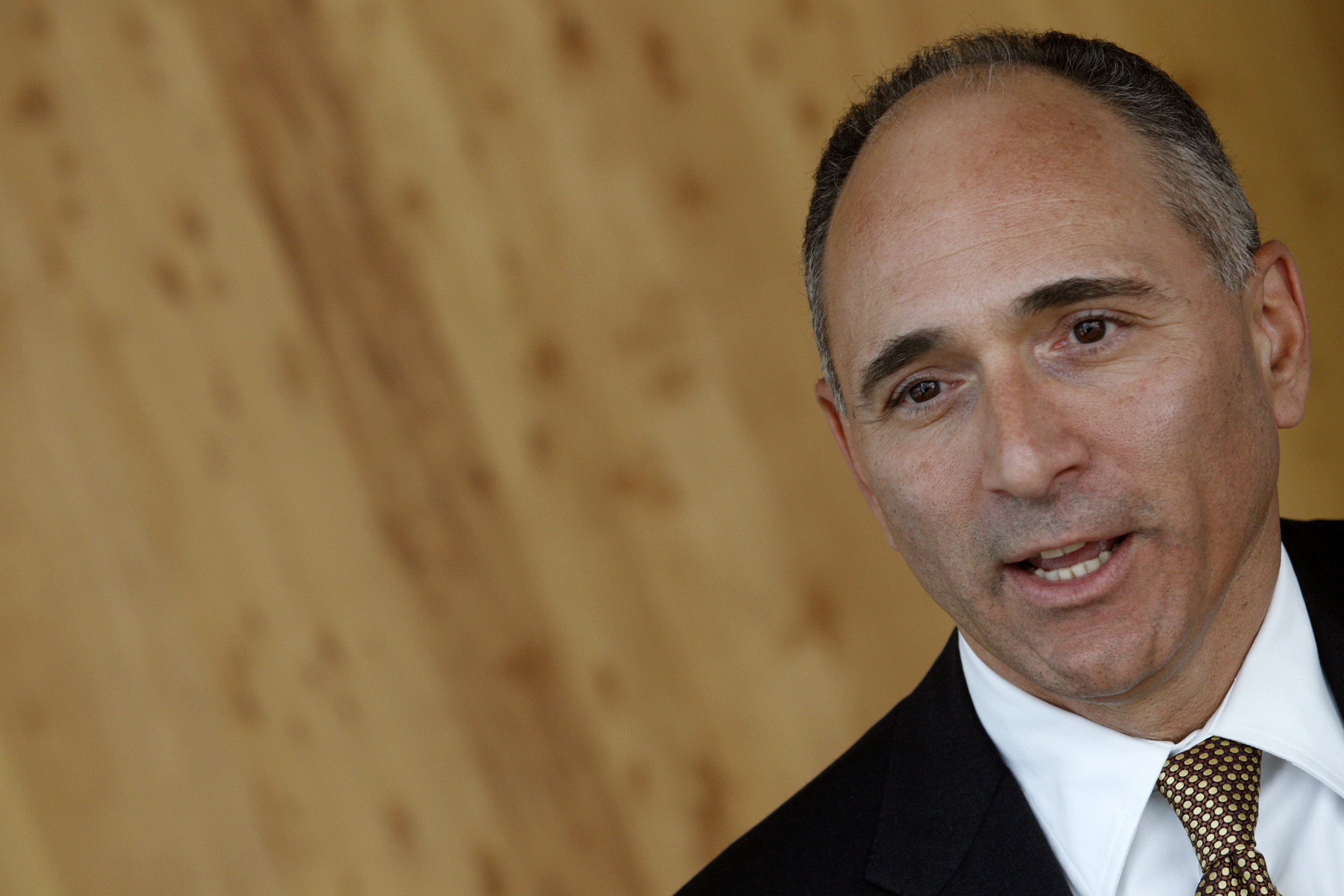Voters solicited over executive pay

The heated debate in Switzerland on “fat cat” pay has led to a consensus of sorts: shareholders should have a say in top managers’ salaries. Just how much of a say, a nationwide vote on March 3 on the so-called Minder initiative will decide.
“It is just a scandal that leaders of major companies award themselves exorbitant pay and golden parachutes while their companies sustain enormous losses and engage in massive layoffs”, thunders Schaffhausen entrepreneur Thomas Minder, who was elected to the senate as an independent in October 2011.
Indignant even before he was in parliament at the proliferation of juicy rewards for executives, he proposed a people’s initiative “against rip-off salaries”.
His initiative calls for a new article in the Swiss constitution designed to regulate Swiss companies listed on the stock exchange and to increase the decision-making power of their shareholders. Given the climate of popular anger against the hubris of high-flying executives, the initiative received plenty of support. It was handed in to the federal chancellery in February 2008 with over 114,000 valid signatures.
Minder’s initiative has resulted in some intricate political manoeuvring and surprise moves in parliament. Opposed by the right and centre-right, it has got the support of the Social Democrats and Greens.
The debate dragged on for four years before a majority in parliament finally decided to reject Minder’s initiative and support a counter-proposal which takes many on board key points of the initiative but leaves room for flexibility.

More
Salaries – the great social and moral divide
Must or may?
The initiative stipulates that the annual general meeting (AGM) of the shareholders should decide the amount of remuneration to be paid to the board of directors, the executive and the advisory board. The counter-proposal lets the shareholders decide whether their vote should be binding or a recommendation.
Another significant difference is that the initiative completely bans golden handshakes and advance payments, while the counter-proposal allows the AGM to make exceptions, which would need to be approved by a two-thirds majority.
“We do not want the state to impose excessively rigid rules. On some points we need to give the shareholders freedom to decide,” said Martin Landolt, a member of parliament for the centre-right Conservative Democratic Party and co-chair of the “No to the Minder Initiative”.
For Minder, on the other hand, it is crucial to “close all the escape hatches for the profiteers – this is a central point when money and greed are involved”.
Minder thinks it essential that the AGM vote to appoint the chairman and other members of the board each year. Then when they want to get rid of top managers there will be no risk of having to keep paying them for years because they have a binding contract, he says.
“If the shareholders see the need to decide otherwise for the good of the company, they should be able to do it,” Landolt told swissinfo.ch. In his view, the counter-proposal, which allows elections for mandates up to a maximum of three years, is better suited to the needs of corporate management.
On the political front so far, the initiative is being supported by the Social Democratic, Green and Evangelical parties, and is being opposed by the Liberal-Radical, Green-Liberal, Conservative Democratic and Christian Democratic parties.
Representatives of the Swiss People’s Party in parliament have also rejected the initiative. It is still possible, however, that the rank and file may decide to support it. The party’s general meeting will vote on this on January 26.
The business and professional lobbies as well as Travail.Suisse, one of Switzerland’s trade union umbrella groups, are opposed.
However, the Swiss Federation of Trade Unions, the largest such grouping, is asking people to cast a blank vote on March 3. It is critical both of the initiative and the counter-proposal, believing that they will bring no benefit to workers.
Pension funds and the interests of members
Particularly controversial is the obligation imposed by the initiative on pension funds to vote “in the interest of their members” at the AGMs of all listed companies in which they own shares.
“I do not believe that it is possible to know what the interests of the members are, given that different members may have different interests,” said Landolt.
“If a pension fund is not able once a year to check off items on the agenda, vote yes or no or abstain, it means that it is not fulfilling its mandate. It is a matter of protecting the fund and the members’ assets,” Minder argues.
Infractions punished severely
In addition to laying down the ground rules, the initiative wants violations of those rules to be punished by up to three years in prison or a fine equivalent to six years’ pay.
According to business circles, this kind of deterrent would be counterproductive because it would discourage corporate leaders from assuming responsibility and would have a negative impact on the competitiveness of Swiss industry.
“The sanctions are indispensable as a deterrent to breaking the rules,” Minder insists. In his view, lawsuits to recover unearned pay, as envisaged by the counter-proposal, will not work.
“The company would not act, for fear of getting caught up in a long court case with attendant loss of image. And shareholders would not take the legal route either, because they would not want to get into costly proceedings without being sure of winning”.

More
What top management earns
Big money versus big inspiration
Speaking of costly proceedings, the Swiss Business Federation, economiesuisse, has set aside a budget of between SFr5 and 8 million ($5.4 and 8.6 million) to combat the initiative. For his part, Minder is not saying how much he is able to spend on his campaign. But the difference in resources between him and his opponents is huge, he assured swissinfo.ch.
A new phenomenon in Switzerland is the support for the initiative coming from a non-party association called “People against rip-offs”. Taking its inspiration from Barack Obama’s presidential campaign, the association is collecting donations via an internet platform and calling on people to participate actively in the campaign. It puts across its ideas in posters, advertisements and video-clips.
The electorate is due to vote on the Minder initiative on March 3. If it were to be rejected, a procedure would then kick in to implement the revision of company and accounting law already approved by parliament as a counter-proposal.
The AGM decides each year the total amount of remuneration to the board of directors, the executive and the advisory board.
Each year it elects the chairman of the board, the individual board members and the compensation committee, and the independent proxy holder.
The pension funds vote in the interest of their members, and their vote is made public.
Shareholders can vote electronically from a remote location if they wish.
Voting on these matters cannot be delegated to the executives, managers or to proxy shareholders.
Executives and managers cannot receive golden handshakes or other compensatory payments, advances, or bonuses for buying or selling companies, nor can they be awarded extra contracts for consulting or work for other companies in the group.
Management cannot be delegated to a legal entity.
Infraction of the provisions is punishable by prison up to three years and a fine equivalent to up to six years’ pay.
(Translated from Italian by Terence MacNamee)

In compliance with the JTI standards
More: SWI swissinfo.ch certified by the Journalism Trust Initiative



You can find an overview of ongoing debates with our journalists here. Please join us!
If you want to start a conversation about a topic raised in this article or want to report factual errors, email us at english@swissinfo.ch.